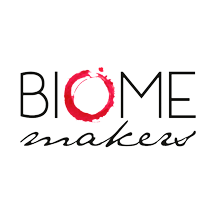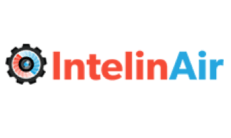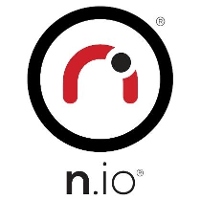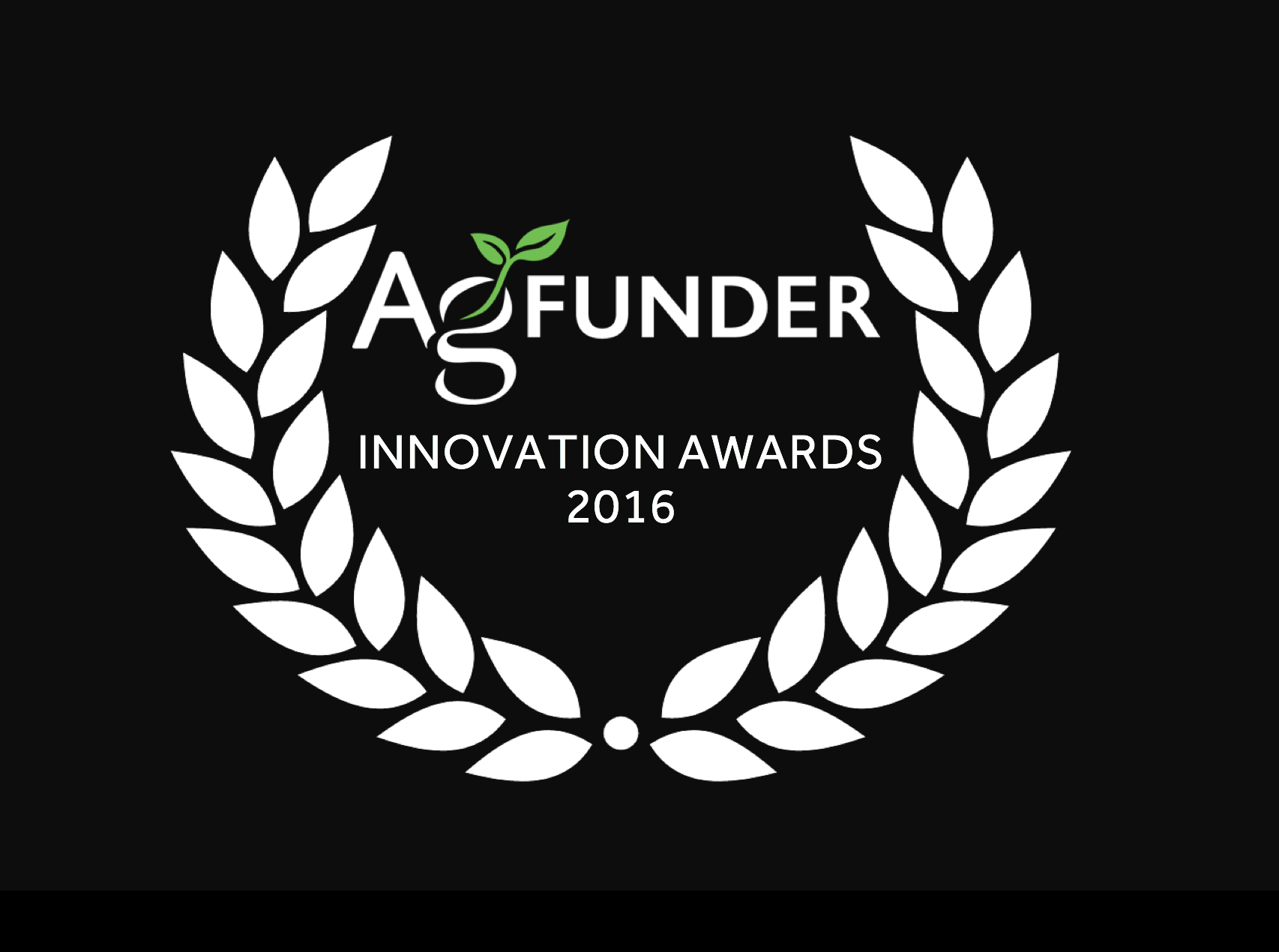Today we are excited to release the winners of the inaugural AgFunder Innovation Awards.
Startup activity in food and agriculture technology is growing dramatically; at AgFunder we’ve come across over 5k companies since 2014. At the same time, investors are paying increasing attention to the potential for technology to revolutionize the food industry and provide them with financial returns.
To recognize the agtech startups that are driving the industry forward and are the most innovative, we decided to launch the AgFunder Innovation Awards. To determine these awards, we asked you, our global network of over 25k people committed to the progression of agriculture, to submit nominations for consideration.
Here are the top five winners (in alphabetical order) for each category:
The 5 Most Innovative US Pre-Series A Startups
 Biome Makers, San Francisco, CA
Biome Makers, San Francisco, CA
An ag bioinformatics startup for the wine industry, Biome Makers offers a soil testing service to vineyards to give them recommendations and insights on improving the quality and yield of their crop. It does this by testing for microbial species in the soil, and determining the impact they will have on a vineyard through an extensive microbial database. Biome Makers raised a $2.2 million seed round in 2016.
 IntelinAir, San Jose, CA
IntelinAir, San Jose, CA
IntelinAir uses imagery analytics to find anomalies that could have an adverse effect on a farmer’s operations and profitability, such as a weed infestation, nutrient deficiencies, weather damages, or insects and fungus. IntelinAir raised a $3.5 million seed round in September 2016.
 n.io, Broomfield, CO
n.io, Broomfield, CO
An Internet of Things software and automation platform boasting the ability to connect to unlimited sensor and data inputs, n.io works across industries and its first ag product is an irrigation management and control service.
 Abundant Robotics, Hayward, CA
Abundant Robotics, Hayward, CA
The startup’s mission is to “bring robotic solutions for the hardest jobs in agriculture,” and its first robot is an apple-picking robot, designed to pick one apple a second, without damaging the tree or the fruit. It uses computer vision to recognize the apples on the branch that are ready for harvest and picks them using a type of vacuum.
 Produce Pay, Los Angeles, CA
Produce Pay, Los Angeles, CA
Farmers are often left waiting for produce to sell before they’re paid, leaving them in a risky financial position post-harvest. ProducePay is an online platform that connects them directly with distributors and suppliers but also pays them for their produce the day after it’s shipped through a lending platform. ProducePay raised a $2.5 million seed round in July 2016.
The 5 Most Innovative US Startups at Series A and Beyond:
 AgBiome, Raleigh, NC
AgBiome, Raleigh, NC
AgBiome is using microbiome research to manufacture biofungicides and other bio-control products. It has isolated, sequenced and screened over 26k microbes through its discovery and development platform Genesis. It’s also discovered several new mode-of-action traits and biological input products in what it describes as “the microbe land grab.” The company has attracted equity and grant investment from The Bill & Melinda Gates Foundation, which saw the potential for AgBiome’s technology to impact smallholder farmers in Africa.
 Benson Hill Biosystems, St. Louis, MO
Benson Hill Biosystems, St. Louis, MO
Benson Hill is a bioinformatics or bio-discovery platform using large amounts of genomic data and biological intelligence from public and private sources to pinpoint which plants will produce desired traits and improved performance. CropOS, which Benson Hill launched this year as its ‘cloud biology’ platform, uses machine learning to grow smarter and more predictive with every experiment and data set. It recently partnered with the National Corn Growers Association.
 Blue River Technologies, Sunnyvale, CA
Blue River Technologies, Sunnyvale, CA
Blue River’s weeding robot uses computer vision and machine learning to observe and identify plants in need of chemical treatment, weeding or thinning; make a fast decision on the appropriate course of action, and execute that action in real time. The company claims that this precision application of inputs — in comparison to the broad-based application of fertilizer and chemicals that traditional equipment allows — will reduce the amount of chemicals used in agriculture by 90 percent.
 Descartes Labs, Los Alamos, NM
Descartes Labs, Los Alamos, NM
The artificial intelligence and deep learning startup claims to be able to use satellite data to make agriculture predictions that are more accurate than the US Department of Agriculture. It will teach computers to identify specific information and find patterns across vast amounts of image data and pixels to give a better understanding of how crops are growing globally and over time. By the end of 2015, the company had looked at 2.8 quadrillion pixels of satellite data to predict the corn harvest by effectively measuring the weight of the average kernel of corn to better than 3 milligrams, or 99 percent accuracy.
 Farmers Business Network, San Carlos, CA
Farmers Business Network, San Carlos, CA
Starting out as a farmer-to-farmer agronomic network and data aggregation service, it later added the FBN Procurement Platform with the aim of enabling farmers to purchase chemical inputs directly from manufacturers, with full price transparency, to help them reduce costs. The platform touts a 15 percent to 40 percent saving on popular chemicals and offers a best price guarantee.
The 5 Most Innovative International Pre-Series A Startups:
 AgriWebb, Windsor, Australia
AgriWebb, Windsor, Australia
AgriWebb’s goal is to leverage the data coming off pastoral livestock farms to improve their efficiency and profitability. Through its mobile app, AgriWebb is also a record-keeping tool for producers, which they can feed into their budgeting, business analytics, and reporting processes. In July 2016 it raised $3 million in seed funding.
 Connecterra, Amsterdam, Holland
Connecterra, Amsterdam, Holland
The company manufactures wearable devices for dairy cows to monitor their health in real-time using machine learning and sensor technology. In May 2016 it raised $1.8 million in seed funding from a diverse investor base including UK IoT-focused incubator Breed Reply, UAE-based fund MENA Venture Investments, and Japanese video game developer DeNA.
 SunCulture, Nairobi, Kenya
SunCulture, Nairobi, Kenya
A solar-powered drip irrigation kit manufacturer, SunCulture has plans to become a one-stop shop for emerging market farmers by providing asset finance to help them purchase ag technologies and improve yields. The CEO Samir Ibrahim was recently named on Forbes’ 30 under 30 list for energy. The startup has won several grants including USAID’s Powering Agriculture: An Energy Grand Challenge for Development.
 Taranis, Tel Aviv, Israel
Taranis, Tel Aviv, Israel
A farm management software platform, Taranis focuses on making crop disease predictions using weather data, satellite imagery, and weather stations. Its SmartScout app sends messages and chat notifications to a farmers’ network of service providers, such as their agronomists or crop scouts, to help them prioritize their work on the farm each visit. Taranis raised $2 million in seed funding from Salesforce CEO Marc Benioff among others.
 The Yield, Sydney, Australia
The Yield, Sydney, Australia
The startup offers sensors, data management platforms, and mobile apps to producers in the agriculture and aquaculture industries. This IoT approach allows clients to improve on-farm productivity, reduce the cost of complying with food safety standards, increase shelf life, and provide better risk management, according to the company. It raised $2.5 million in seed funding in a round led by global technology and services provider Bosch Group.
The 5 Most Innovative International Startups at Series A and Beyond:
 Engender Technologies, Auckland, New Zealand
Engender Technologies, Auckland, New Zealand
Engender uses lasers to effectively sort sperm by sex providing the $2.4 billion artificial insemination market with greater control over the sex of the offspring that is born. The company uses light in a number of ways, from orienting sperm cells, looking inside them, and separating them based on whether they bear an X chromosome or a Y chromosome. It raised a $4.5 million Series A in June 2016.
![]() Farmers Edge, Winnipeg, Canada
Farmers Edge, Winnipeg, Canada
The farm management and decision support software company focuses on collecting and analyzing big data coming off the farm. By “digitizing” each farm it undertakes — including installing a weather station for every 2,500 acres and connecting its CanPlug sensors to farm machinery — the company boasts an ability to bring solid predictive models to remote parts of the world. It raised several funding rounds in 2016 including providing an exit for Kleiner Perkins Caufield & Byers when Prem Watsa invested in December 2016.
 Gamaya, Lausanne, Switzerland
Gamaya, Lausanne, Switzerland
Through the use of drone imagery, the company provides farmers with alerts about pests and disease, yield predictions, and prescriptions for input application rates. Its current platform services corn, soybean, and sugarcane growers. Gamaya differentiates itself from others in the drone imagery space through its hyperspectral sensing technology; the majority of drone imagery companies use multispectral images. It raised $3.2 million in Series A funding in May.
 Prospera Technologies, Tel Aviv, Israel
Prospera Technologies, Tel Aviv, Israel
This startup is taking a novel approach to monitoring crops with a camera and sensor hardware system, which currently captures half a million readings every day. Using computer vision and a large database of research around diseases, nutrient deficiency, and other types of crop stress, Prospera’s cameras can pick up on small changes to crops, and predict the issue afflicting them. It raised a $7 million Series A in July.
 Ynsect, Évry, France
Ynsect, Évry, France
Ynsect is using robotics and automation to farm mealworm for use as a fishmeal replacement in fish feed. Ynsect’s proprietary technology produces TMP, or Tenebrio molitor protein — a de-fatted protein meal made of farmed mealworm larvae. It raised $15.2 million in Series B funding in December.
The 3 Most Valuable Agritech Accelerator Programs:
 IndieBio, San Francisco, CA, and Cork, Ireland
IndieBio, San Francisco, CA, and Cork, Ireland
SOS Ventures’ leading accelerator, Indie Bio is focused on life sciences broadly and has graduated several food and ag-focused startups out of its program in California and Ireland.
 The Yield Lab, St Louis, MO, and Galway, Ireland
The Yield Lab, St Louis, MO, and Galway, Ireland
The first accelerator to focus purely on agriculture after launching in 2014, it is based in St Louis and recently launched a program in Ireland.
 Village Capital, Louisville, KY
Village Capital, Louisville, KY
The first accelerator to launch a dedicated agriculture program, Village Capital has hosted several cohorts and demo days for agtech startups out of its ag practice in Louisville, Kentucky.





